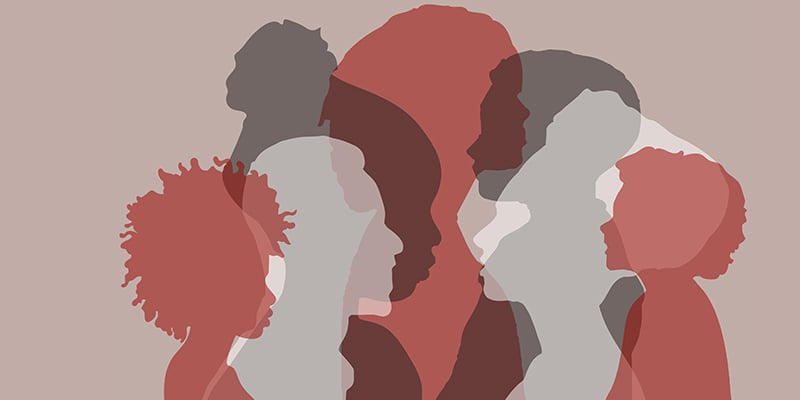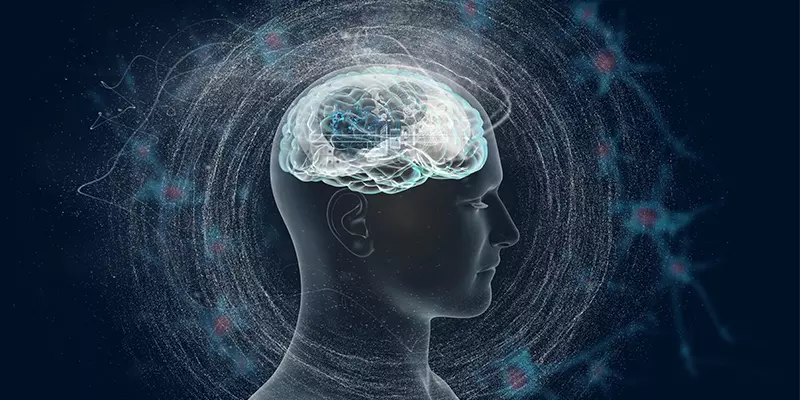
It’s no surprise that people across the U.S. are struggling with depression, anxiety disorders, and other issues. Minority communities are especially vulnerable to mental health disorders, according to statistics from Mental Health America. Why are BIPOC (Black, Indigenous, Persons of Color) communities suffering at rates higher than others? Why are they less likely to get the help they need? And what can be done to change that?
Why are BIPOC (Black, Indigenous, Persons of Color) suffering at rates higher than others? Why are they less likely to get the help they need? And what can we do to change that? Click To Tweet
MINORITY MENTAL HEALTH OVERVIEW
Let’s look at the state of mental health for some of the racial/ethnic groups in the U.S.
- Black and African American: More than 16%—over 7 million people—have reported experiencing a mental health issue in the past year. Compared with adult whites, adult Black and African American people tend to experience more depressive symptoms, such as worthlessness and hopelessness.
- Native and Indigenous: Over 19%—more than 827,000 individuals—say they have had a mental health disorder within the previous year. Over the course of a month, Native and Indigenous people in the U.S. experience severe psychological distress 2.5 times more often than the general population.
In this community, people also tend to start using or abusing alcohol and drugs earlier and more frequently than any other racial or ethnic group. High rates of poverty in this community prevent people from seeking medical treatment for psychiatric issues.
- Latinx or Hispanic: More than 16%—over 10 million people—say they were affected by mental health problems in the past year. In this community, the pronounced stigma associated with mental health problems keeps many people from seeking help.
In fact, only 20% of Latinx/Hispanic people with emotional or behavioral problems will discuss it with their physician. Even more concerning, only 10% will visit a mental health professional for treatment. Some individuals in this group harbor the belief that talking about mental health problems will bring shame to a person’s family. This is yet another reason why too many of these people suffer in silence.
- Asian American and Pacific Islander: Roughly 15%—2.9 million people—reported having a mental health condition in the previous year. These numbers are rising among young adults aged 18-25.
According to SAMHSA’s National Survey on Drug Use and Health, the incidence of serious mental illness (SMI) in this group nearly doubled from 2.9% to 5.6% from 2008-2018. Rates of major depressive disorder also increased among AAPI people aged 12-17, 18-25, and 26-49 from 2015-2018.
Suicidal ideation and attempts are also increasing among AAPI young adults. Asian Americans are the least likely to seek help for mental illness, meaning they may not get treatment that could be beneficial.
- Arab/Middle Eastern/Muslim/South Asian: Among South Asians, 1 in 5 say they experience an anxiety disorder or mood disorder during their lifetime. Muslims who experience religious discrimination are at risk for anxiety, depression, alcohol use, and subclinical paranoia.
Approximately 33% of Muslims perceive discrimination in the healthcare system, which may reduce the likelihood of seeking help for emotional, behavioral, or substance abuse issues.
- Multiracial: Of all the racial/ethnic groups, those who are multiracial are the most likely to say they have a mental health issue. About 25% of people who are multiracial report struggling with one. An estimated 55% of these individuals also say they have been taunted by racial slurs, which may increase mental health issues.
RACIAL TRAUMA AND MINORITY MENTAL HEALTH
Like any group of people, minority communities can suffer from a wide variety of mental health conditions. One issue that is common in minorities includes racial trauma, also known as race-based traumatic stress.
Many minorities experience mental and emotional assaults involving racism, discrimination, or hate crimes. When an individual is faced with a painful racist situation, it puts them at risk of developing race-based traumatic stress. Minorities may have also experienced historical or generational trauma that negatively impacts mental wellness.
This can lead to symptoms seen in depressive disorder, posttraumatic stress disorder (PTSD), anxiety disorders, and more. Anger, low self-esteem, hypervigilance, and mentally distancing oneself from the racist event are also common.
Although racial trauma is not considered a mental illness, it is an emotional injury that can benefit from treatment.
BIPOC BARRIERS TO MENTAL HEALTH TREATMENT
For some minority groups, certain issues can make it more challenging to receive the mental health treatment they need. Such factors impacting BIPOC mental healthcare include:
- Stigma: The belief that mental illness is shameful is common in many minority groups. This contributes to stigma, which prevents people from seeking the help they need.
- Socioeconomic status: Some minority groups are more likely to live in poverty. This creates problems in multiple ways. First, growing up in poverty increases the risk of mental health problems and behavioral issues. For example, childhood poverty is linked to poorer academic performance, reduced attention, increased behavioral problems, and a greater risk for psychiatric conditions.
Experiencing poverty as an adult is associated with greater incidences of major depressive disorder, anxiety, and suicidal thoughts and behaviors. In addition, poverty creates an economic barrier to mental health treatment.
- Lack of health insurance or underinsurance: Due to poverty or other reasons, some minority communities are less likely to have health insurance. This prevents many people from making an appointment with a physician, psychiatrist, psychologist, or therapist. Because of this, these individuals don’t get the help they need.
- Language barriers: For some minority groups, language barriers may hold them back from seeking treatment. Difficulties with language comprehension can interfere with a person’s ability to articulate their concerns to a medical professional. Language issues may also impede the ability to follow through on treatment recommendations.
- Lack of diversity in the mental health field: The number of minorities who are mental health practitioners remains low. According to a 2018 study, the percentage of U.S. psychologists by racial/ethnic group was:
- White:86%
- Latinx/Hispanic: 5%
- Asian: 5%
- Black and African American: 4%
- Multiracial or other racial/ethnic group: 1%
For this reason, some minorities feel a lack of confidence in mental health professionals’ cultural competence. This lowers the likelihood that individuals with emotional or behavioral problems will seek treatment.
- Distrust in the healthcare system: Research shows that some minorities have a lack of trust in physicians. It’s understandable considering some studies show that people of color are more likely to receive inadequate care compared to others.
IMPROVING MENTAL HEALTHCARE FOR MINORITIES
As a minority, you deserve to feel better. Seek out mental health professionals who understand your unique experience and who are well-versed in generational trauma. Remember that as a society, we are beginning to talk more openly about the importance of mental health. This is helping to reduce the stigma attached to psychological issues.
By taking an active role in your mental health and finding a professional partner who can guide you to better emotional and behavioral wellness, you can live the life you’ve always wanted. Imagine how much better life could be if you felt calmer, happier, and more in control.
Racial trauma, depression, anxiety, and other mental health issues can’t wait. At Amen Clinics, we’re here for you. We offer in-clinic brain scanning and appointments, as well as mental telehealth, clinical evaluations, and therapy for adults, teens, children, and couples. Find out more by speaking to a specialist today at 888-288-9834 or visit our contact page here.





Your services are very excellent but some of us can't afford it. I wish you accept Medicaid or Medicare. I have social security disability and have both Medicaid and Medicare. It be wonderful if you accept insurance.
Comment by Adrian Torres — July 26, 2023 @ 9:04 AM
Thank you for this report, I do see that are not enough studies out to help deal with these issues. What I have seen that when you bring this up some think you only looking from one point of view. The counselors that I have met will only look at the issues from there back ground or ethnic group. I would like see teaching for counselors to be able to help people within diverse ethnic groups. The answer is not one shoe fit all.
Comment by Leon Beeler — July 26, 2023 @ 11:53 AM
Many can’t afford the $5,000 price tag for a brain scan or treatment by a functional medicine doctor.
Comment by Kathy Steinman — July 27, 2023 @ 10:33 AM
I agree with Adrian Torres, due to the fact that a large percentage of minorities are normally underinsured. Therefore, when we do find " mental health professionals who understand our unique experience and who are well-versed in generational trauma", those professionals do not accept our form of payment/insurance or provide services at a lowered payment method. So we will continue to experience the generational trauma due to our socio -economic status. Leon Beeler also has a very good perspective on how to remedy some of the problematic areas with his idea of the inclusion of diversity education for therapist. Lets hope the diversity education would also address the language barriers. I personally feel, that not only is there a language barrier on behalf of the client as reported; I think medical professionals normally do not understand the Idioms, or the Ebonics, that their clients may use which at times are negatively interpreted. Nevertheless, it appears that we still have a long way to grow in order to meet the needs of the underserved population of people. Amen!
Comment by SM Blanton — August 1, 2023 @ 12:16 PM